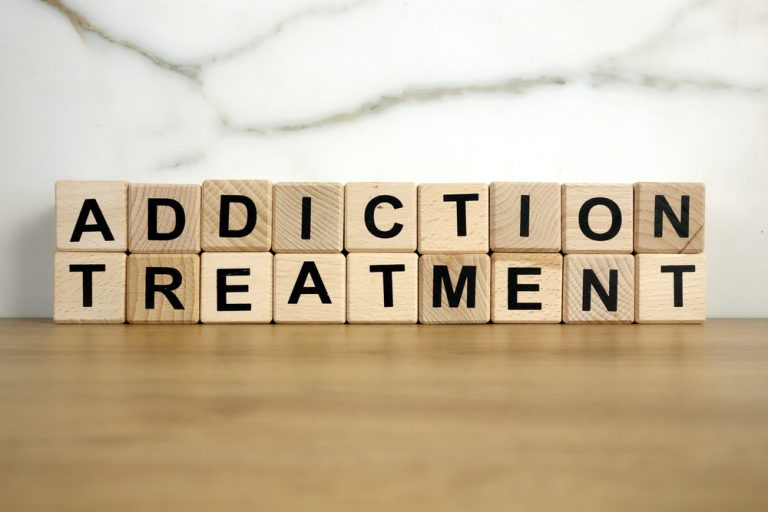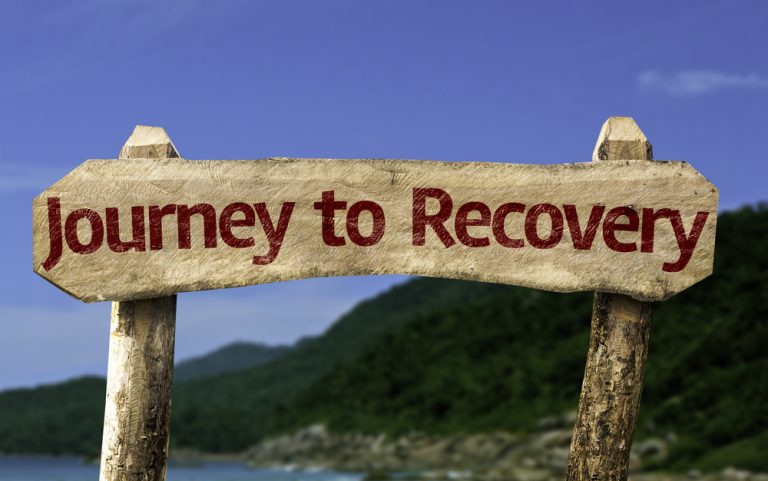Have you decided to quit alcohol, but are frightened by the thought of spending time in rehab? Around 68% of people reported absenteeism from drugs after receiving rehabilitation services. This article covers both drug and alcohol rehab and detox treatments, highlighting the different treatment programmes available. While the success rates for rehab are indeed incredible, the time you may spend there can greatly depend on many factors.
In this guide, we’ll walk you through how addiction rehab time can differ for different dependencies. We’ll explain to you the treatments you can avail and the factors to consider when choosing the best rehabilitation centre.
Necessity of an Addiction Rehab
Whenever you’re sick, you go to a hospital to get treated by qualified professionals. The reason you visit a clinic instead of anywhere else is obvious: the availability of specialised care.
Likewise, when you have an addiction, you can count on receiving structured treatment from experts at a rehab only. Choosing a dedicated rehab facility ensures you receive care in a purpose-built environment designed for recovery, with tailored support and resources. Inpatient treatment is also an option, providing 24-hour care, structured therapy, and ongoing support throughout the recovery process. These professionals are well-trained to conduct a comfortable detox in a safe setting. Besides rehab, you cannot expect to have a calm, supportive, and progressive environment anywhere. Residential treatment further enhances recovery by offering a distraction-free, supportive setting that promotes long-term healing and sobriety.
Treatments You Can Expect to Get At Rehab

Rehabilitation centres offer a comprehensive treatment programme tailored to individual needs for healing your addiction. Most common options may include:
Inpatient or Outpatient Programs: You can choose between receiving the treatment in a rehab centre entirely. Or you can opt for treatment plans that involve getting out of the facility to perform daily life responsibilities. You can easily make a choice between these programs depending on your priorities.
Detox: The detox process is the initial phase of addiction recovery, involving the removal of addictive substances from your body under medical supervision. For those with severe dependencies, a medical detox is provided, where medical staff use detox medication to manage withdrawal symptoms and help you detox safely. This ensures the process is as comfortable and risk-free as possible.
Therapeutic Interventions: The best part about rehab is that they don’t only focus on eliminating the substance from your body. Instead, these centres work on the underlying issue of addiction through therapy sessions, which may include both group and individual formats. Talking therapies such as cognitive behavioural therapy and addiction therapy are commonly used to address mental health issues, change destructive thought patterns, and support long-term sobriety.
Holistic and Alternative Therapies: Many treatment programmes also offer holistic options like music therapy, which support emotional and physical wellbeing during recovery and complement traditional addiction therapies.
How Long Is Alcohol and Drug Rehab?

When you enter rehab, the length of time you spend in a rehab stay will vary based on your individual needs, the severity of your addiction, and the type of rehab programme you choose. Rehab programmes are designed to offer different durations and structures to best support recovery from drug addiction or alcohol dependence. Common options may include:
Detox Programs: Some detox programs may last about a week, while others extend over several weeks, depending on the substance involved and the individual’s health.
30-Day Program: This is a short-term intervention, focusing on detox and jump-starting the recovery. If you have a mild form of addiction, this program may suit your needs well.
60-Day Program: Rehab programs spanning 2 months or 60 days are more elaborate than those that last 30 days. It may involve therapeutic intervention and aftercare strategies to maintain long-term sobriety. With this, you can also expect to heal underlying issues and understand your addiction on a deeper level.
90-Day Program: With this rehab program, you can look forward to receiving more extensive care. Here, you will also learn interventions for re-integrating into society.
Long-Term Interventions: These programs are for those who need ongoing support while recovering from addiction. These are the individuals who have been through extreme emotional and physical issues and are still not able to control their urges.
For example, a rehab programme for drug addiction treatment may require a longer rehab stay, especially if there are co-occurring mental health conditions, while an alcohol rehab programme might focus on a shorter detox period followed by ongoing therapy. The length of time needed for each treatment programme depends on the nature and severity of the addiction.
Research shows that longer rehab programmes are associated with better treatment outcomes, as they provide more time for comprehensive therapy and relapse prevention. A comprehensive treatment programme may include both detox and ongoing therapy, and drug addiction treatment and alcohol rehab may require different approaches to achieve the best possible recovery.
How Long Will I Stay in Rehab?
Honestly, you cannot estimate the length of stay you will be spending in rehab. Oftentimes, your symptoms may be severe, but the recovery will take no time. On the other hand, sometimes the effects may not be severe, but it may take longer to heal or control the urges.
The length of stay in rehab can be unpredictable. Physical dependence and the physical side of addiction can have a huge impact on how long you need to stay, as withdrawal symptoms and the need for medical supervision vary for each person. Additionally, co occurring mental health issues and other mental health issues, such as depression or anxiety, can extend the recovery process and require specialized care. As mentioned previously, the detox or treatment stages also play a role in determining the overall duration.
Some common factors that can also impact this time period may include:
The severity of substance addiction and the extent of drug use or drug abuse, which can influence the length of stay needed for effective treatment.
Individual’s Commitment
Regardless of the addiction you may have, you will never heal until you’re committed to your healing and progress. Being consistent with your structured treatment plan can actually speed up the healing journey, making you spend less time at rehab. Nevertheless, if you aren’t willing to cooperate, you can anticipate spending more time in rehab.
Physical Health
Your health condition can significantly impact the rate at which an addictive substance leaves your body. Consequently, the poorer your physical well-being, the longer the detox period will be, and the more time you will spend at rehab. Especially in conditions where the heart or liver has compromised functioning, the recovery process may even become slower.
Emotional Health
People with pre-existing mental health disorders, such as anxiety, depression, or PTSD, can also stay longer in rehab. In such cases, the recovery doesn’t only involve getting rid of the dependency, but it also involves healing the deeper issues. Such individuals are advised to have therapeutic interventions alongside addiction treatment for long-term recovery.
Type of Addiction
Every addictive substance impacts the brain differently. Consequently, the treatment required to treat these dependencies may also vary greatly. For instance, the addiction to one substance may be healed more quickly than another. Similarly, there will be substances whose detoxification may take longer than usual. Here’s an elaborate rehab timeline for every substance:
Opioid Addiction: The detox phase for opioids can be intense and prolonged. It is often backed by medication-assisted treatment with intensive therapeutic interventions.
Stimulant Addiction: Here, the detox may be shorter, but the counselling phase and controlling craving may take longer to resolve.
Alcohol Addiction: This involves the detox phase, which may last for several days, followed by therapy and relapse prevention strategies.
Severity of Addiction
If your addiction has been on a severe level or long-term, you may require even more time to heal. Depending on the intensity, it could take longer to detox, stabilise your mind, and acquire healthy coping strategies. This is mainly because your body is accustomed to certain effects, which then require time to wear off.
Does More Time in Rehab Mean Better Recovery?

Yes, the longer you’re in rehab, the better the outcomes will be. Continued support and professional support during and after rehab are crucial to maintain recovery, as they provide ongoing care, relapse prevention, and help with reintegration into daily life. According to studies, people who have spent at least 90 days or more in a rehabilitation centre reported long-term sobriety. Not only this, but such individuals also excelled at understanding their addiction, developing healthy coping strategies, and formulating positive thought patterns, giving them the best chance at maintaining long-term sobriety.
Why Go for a Rehab?

But why is rehab so important for addiction? Can’t we just detox ourselves at home and get started with our normal lives? No! Getting rid of addiction isn’t as straightforward as it may seem. It can bring along life-threatening complications. Rehabs in such instances are well-equipped to handle any situation because they provide:
Structured Treatment: Rehab experts know exactly when and how to start treating an addiction. They strictly adhere to the concept of individuality and ensure to provide evidence-based treatment to every person who comes to them.
Medically Supervised Interventions: Detoxing from an addictive substance can often come with fatal withdrawal symptoms. These, if left unmonitored, can quickly spiral, leading to relapse or discomfort. Doctors at rehab may usually prescribe medications to ease these symptoms and make the detox phase somewhat bearable. Once a person is detoxed, they can begin the next stage of the rehab process, which involves therapy and aftercare planning.
Accurate Aftercare Planning: When you’re in a rehab, your biggest fear is getting back into society. A credible rehabilitation supervisor will help you simplify this process by formulating an aftercare plan. This may include therapies or support groups to join for maintaining sobriety even after rehab.
Stable and Calm Environment: Rehabilitation centres provide a stress-free environment for healing. They ensure the whole setting is supportive, free of judgment, and lacks cues that may trigger relapse.
Effective Coping Strategy Development: One of the most important things you will become aware of at a rehab is your triggers. You will learn what stresses you out and how you can manage with healthy coping strategies.
Assistance in Building Life-Skills: Rehab helps you acquire skills essential for living a happy and independent life. These may include learning how to communicate, manage finances, take care of your well-being and much more.
How to Choose the Best Rehab Centre?
When you have decided to go for rehab, ensure to go for the one that offers:
Credible Service: Read online reviews or have referrals from your friends about the best rehab centres nearby. Consider inspecting more about whether the staff is licensed, compassionate, and supportive.
Cost-Effective Plans: Look for rehab centres that provide flexible pricing with no hidden costs. You can also trust in affordable packages provided by the PCP without compromising on the treatment.
Different Treatment Options: Choose a rehab that specialises in different treatments. Ensure it provides medically-supervised detox, evidence-based therapies, and aftercare options.
If you need personalized guidance or support during the treatment process, don’t hesitate to contact our admissions team for assistance.
PCP Providing the Most Comfortable Rehab Services
When it comes to providing the most comfortable and safe environment to heal, the PCP stands out among the competitors. We encourage all patients to talk openly about their experiences and progress, as communication is vital for effective recovery. Our services ensure to make you feel supported and heard at every step of your recovery journey. And the most incredible part? Every treatment is tailored just according to your distinct needs.
Contact us now to book a slot at one of our rehab centres located all across the UK.
Rehab: Your First Step Towards Recovery!
Addiction can overwhelm you physically and emotionally, but a good rehab can be a game-changer during this phase. Not only does it provide structured treatment, it also helps you heal in a supportive environment free of judgment. So, no matter how long you stay in a rehab, take every day as a chance to rebuild yourself and take steady steps toward recovery.
Author
-
Andy's journey in psychology and substance recovery is marked by significant educational and professional achievements. He studied Person Centered Counseling, gained insights from psychological literature, and completed an online course on the mind. His hands-on experience includes volunteering at a Drug and Alcohol Clinic and earning a diploma in child adverse experiences. Andy holds a first-class honors degree in Psychology with Substance Use and Misuse. Professionally, he has contributed as a Lived Experience Coordinator and counselor, offering hope and empowerment to those in recovery.
Qualifications and Experience:
Introductory Course in Person Centered Counseling
View all posts
Extensive study of psychological literature (including Carl Rogers and Freud)
Online course completion on the Mind from UCT
OCN peer mentoring course
Level 3 diploma in child adverse experiences
First-class honors degree in Psychology with Substance Use and Misuse
Experienced Lived Experience Coordinator for Probation Dependency and Recovery service








